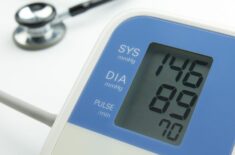Overview: What Does “Conceive” Mean & What Are The Chances Of Getting Pregnant?
“Conceive” is an English word that means “to become pregnant” (as in “to conceive a child”). The word has other meanings (see below). In this article, however, we’ll use “conceive” or “conception” in the context of human pregnancy. (1)
Fertility and your chances of conceiving are affected by different factors. But in general, 1 in every 4 women in their 20s or 30s can get pregnant in any given menstrual cycle. The rate decreases with age, such as in geriatric pregnancy (1 in every 10 women in their 40s). (2)
Depending on age, the chance of spontaneous conception is about 30% within the first month of trying (with unprotected sexual intercourse). However, it steadily goes down and can reach 5% after a year of trying. (3)
This figure shows your estimated conception chances based on age: (4)

However, provisional 2023 data from the CDC (Centers for Disease Control and Prevention) showed that the general fertility rates and the number of live births have been declining in the US over the recent decades. (5)

It’s also concerning that the infertility rates for women of childbearing age are at about 6-19% in the US. As many as 12.2% may have resorted to getting pregnant with the help of fertility treatments. (6)
Why does fertility decline with age, and how can you improve your conception chances naturally? When should you see a doctor for possible fertility concerns, and what else should you know about conception?
Keep reading to learn more.
You can also read about the fertility doctor who fathered 600 (plus other controversial “secret sperm donation”) here.
Definition Of Terms
Meaning From The Dictionary Or Thesaurus
Here’s the word of the day: “conceive” (pronounced as “kən’sēv,” “kənˈsiːv,” or “kənˈsiv”)
This English word means: (1)
- “Become pregnant” – Example sentence: “She wants to conceive a baby before her 40th birthday.”
- “Develop” – Example sentence: “He conceived the plan while traveling to New York.”
- “Understand” – Example sentence: “They couldn’t conceive the meaning of what their friend was saying.”
- “Originate” – Example sentence: “The idea for ByHeart formula was conceived because the founders wanted a healthy formula with cleaner ingredients than what’s available on the market.”
Some new words to learn relating to “conceive”:
- Middle English: “Conceiven”
- Old French: “Concevoir,” “conceivre,” or “conceiv” (comes from the Latin concipere or capere)
- Spanish: “Concebir”
- Arabic: الإنجاب
- German: “Begreifen”
What Is A Word That Means “To Conceive”?
A word list of some synonyms for “conceive”: (1)
- “Get pregnant”
- “Think up”
- “Come up”
- “Invent”
- “Create”
- “Develop”
- “Formulate”
Is Fertilization The Same As Conception?
Yes. Fertilization and conception are synonyms when used in the context of pregnancy. Both mean “the union of the egg and sperm to create life.” (7)
Conceiving A Baby
What Is The Meaning Of “Conceiving A Child”?
“To conceive a child” means getting pregnant and giving birth to your baby. However, conception or fertilization doesn’t always lead to pregnancy. (7)
How Conception Happens
Conception is described as the moment the sperm fertilizes the egg. This usually happens along the fallopian tube. However, for a pregnancy to continue, this fertilized egg must implant in your uterus and grow. (7)(8)
If the fertilized egg (zygote) fails to implant, it is shed off with your menstrual period. (7)(8)
There are times when errors in fertilization, problems with the placenta’s development, issues with implantation, and other things happen. These can lead to the following: (10)(11)(12)
- Unexplained miscarriage
- Molar pregnancy
- Chemical pregnancy
- Ectopic pregnancy (the zygote implants along the fallopian tubes instead of the uterus)
How Long Does It Take For A Baby To Be Conceived?
Pregnancy doesn’t exactly happen on the day you have sex. The conditions must be just right for fertilization to happen. For example, once released from your ovaries, the egg only has 24 hours to get fertilized. (9)
However, if the conditions are optimal, fertilization happens within this 24-hour window. Then, the zygote (fertilized egg) journeys to implant in your uterus for about a week. (7)(8)(9)
Where Conception Happens
Conception usually happens in the fallopian tube. The pregnancy progresses when the fertilized egg implants in your uterus. (9)
Can You Feel The Moment Of Conception & Implantation?
Not really. Most people won’t feel the moment of fertilization and implantation. However, you might experience light cramping when the egg implants about a week after conception. (13)
Early Pregnancy Timeline: What Happens Every Week
Weeks 1-2 (Preparations)
Each month, your body prepares for possible fertilization and pregnancy. If you get pregnant, gestation weeks are counted from the first day of your last menstrual period (LMP), even if you aren’t pregnant then. (14)(15)
During weeks 1-2, your body cleanses your uterus of last month’s endometrium (thickened uterus lining). Then, it begins to prepare for the current month. Your ovaries prepare to release a matured egg, and your uterine lining begins to thicken again to prepare for possible implantation. (14)(15)
Week 3 (Ovulation & Conception)
Ovulation is defined as the moment that your uterus releases a mature egg. Conception, then, happens when a sperm fertilizes this egg. (15)(16)
The highest pregnancy rates are believed to be around 4-6 hours after ovulation happens. (16)
So, if you’re planning to get pregnant, having sexual intercourse within this window can increase your chances. (16)
Note that it’s difficult to predict the exact moment of ovulation. So, your healthcare provider might recommend maximizing sperm concentration by having sex every 2-3 days. However, they might also recommend doing it every day. (16)
The good news is that sperm can still survive for 5 days along your reproductive tract. So, they can still be available for your egg when it’s released on ovulation day. (9)(16)
Sometimes, two or more eggs are released. This is rare but can happen, leading to multiple babies when all of these are fertilized. Because they come from different eggs, they’re fraternal twins or triplets. (15)
If one fertilized egg splits into two, you’ll have a monozygotic pregnancy for identical twins. They share the same genetic material. (15)
Week 4 (Implantation)
It takes about a week for your fertilized egg to journey down the uterus for implantation. (15)(16)
Along the way, the zygote rapidly divides and becomes a ball of cells (also called a blastocyst). Once it implants, this blastocyst continues to subdivide. The outer layer develops into the placenta, a much-needed temporary organ that nourishes your baby as it grows in your womb. (15)(16)
The journey, however, can be ‘long and dangerous’ for the zygote, especially when your fallopian tubes previously experienced some damage, such as from the following: (17)
- Rupture (causing irreversible damage) in a previous ectopic pregnancy
- Previous damage (or even removal) in a previous surgery, such as for an ectopic pregnancy or other forms of surgery in your abdomen or other internal reproductive organs (the fallopian tubes are so thin and small they might be affected by surgery in these nearby areas even if it isn’t directly being operated on)
- Blockage from scars due to PID (pelvic inflammatory disease) and/or other forms of infection
- Endometriosis (the tissues from your endometrial or uterine lining might grow outside the uterus) may block the tubes if this growth is close to them
Week 5 (Missed Period & Pregnancy Testing)
Once your baby implants, the pregnancy hormone hCG (human chorionic gonadotropin) is activated. It signals your body to keep the endometrium and produce other hormones necessary for the pregnancy to thrive. (8)(15)
It takes time for your body to produce enough hCG hormones detectable in a pregnancy test. However, you can start using a pregnancy test on the day of your missed period. (8)(15)(18)
How Pregnancy Tests Work
The hCG hormone is only activated during pregnancy. That’s why it’s used in pregnancy diagnosis for home urine kits and blood tests. (15)(18)
The hormone is rapidly made and can double every 48-72 hours (this rate can vary among women and different pregnancies). (15)(18)
Pregnancy blood tests are more sensitive than home kits, but they’re done in the lab. If you’re willing to wait a couple more days to know if you’re pregnant, urine tests are also accurate and can still detect pregnancy within the week of your missed period. (15)(18)
If you aren’t pregnant, your hCG levels (if there are any) are less than 5 mIU/mL (milli-international units per milliliter). This can increase to around 40-120 mIU/mL around the day your period is due (about 14 days after ovulation). (18)
Here’s an estimate of hCG levels as your pregnancy progresses: (18)

Some pregnancy test kits to consider:
When To Take A Pregnancy Test
You can start using a pregnancy test kit on the day of the missed period. However, a negative test result doesn’t always mean you aren’t pregnant. This might be a false negative, so taking another test within a week or a few days is ideal if you still don’t get your period. (15)(18)
False Positive Or Negative Test & Other Issues
Home pregnancy test kits are considered accurate, but they have varied sensitivity. Some can already detect minimal hCG levels, but others need a higher concentration, which can lead to false negative tests. As mentioned above, you can retake the test if you think you’re pregnant (e.g., experiencing pregnancy symptoms). (15)(18)
You might also get a false negative if you test too early, such as before your missed period. (15)(18)
False positives are rare but can still happen for several reasons: (10)(11)(19)
- Improper testing (to avoid this, read the test kit’s instructions and follow them)
- Chemical pregnancy (an egg was fertilized but it failed to develop properly) – this ends in early pregnancy miscarriage, often mistaken for a heavier-than-usual period
- Molar pregnancy (genetic errors during fertilization lead to problems with the zygote and/or the placenta; sometimes, a fetus doesn’t form) – often, this also leads to early miscarriage around the time of your period schedule
- hCG medications used for fertility treatments also elevate its levels in your blood
- Certain women’s health and medical concerns, such as ovarian problems, chronic kidney disease, or certain cancers
- Menopause (hormonal changes during this period might elevate your hCG levels even if you aren’t pregnant)
- Recent miscarriage or pregnancy – it takes time for the hCG levels to go down (sometimes taking a couple of months after the pregnancy ends)
- Ectopic pregnancy (the egg implants in your fallopian tubes) – sometimes, you can miscarry naturally, but if not, emergency surgery must be done so the tube won’t rupture (a ruptured tube can lead to internal bleeding or future infertility issues)
Irregularities in your hCG levels can be indicators of other pregnancy problems. For example, hCG levels that are about 100,000+ higher than normal can indicate a complete molar pregnancy, while much lower levels can indicate a partial molar pregnancy. (11)(20)
Factors That Can Affect Conception
Many factors can affect conception, including the following women’s health concerns:
- Fallopian tube damage or sterilization (17)
- Cervical mucus problems that can affect sperm movement and lifespan (21)
- Ovulation problems, including amenorrhea (no period for at least 3 months), hormonal imbalance, or PCOS (polycystic ovary syndrome) (22)(23)(24)
- Early menopause or primary ovarian insufficiency (premature ovarian failure before you turn 40) (25)(26)
- Vaginal microbiome dysbiosis or imbalance (27)(28)
- Certain medications, including steroids, antidepressants, asthma medicines, and anti-inflammatory drugs (29)
- Certain essential oils, OTCs (over-the-counter medicines), and alternative therapies (29)
- Cancer treatment (30)
- Psychological or mental health reasons, including bipolar disorder, depression, anxiety, anorexia or other disturbed eating behavior, autism, or psychotic disorders (such as schizophrenia and bipolar disorder) (31)
- STDs (sexually transmitted diseases), including chlamydia, gonorrhea, HSV (herpes simplex virus), HPV (human papillomavirus), and/or syphilis (32)
- Advanced maternal age (35+ years old) might lead to fertility decline. (33)(34)
- Obesity might cause hormonal imbalance (including low levels of sex hormone binding proteins) or other health problems that can affect fertility, such as diabetes (35)
- Stress or trauma (36)
- Exposure to toxins, including environmental factors, alcoholic drinks, smoking (including vaping and secondhand smoke), or recreational drugs, particularly opioids and marijuana (37)
Male factor infertility issues can also reduce your chances of conception. Some of these problems include:
- Ejaculation issues (38)
- Poor sperm or semen quality (37)(38)
- Damage to the testicles (38)
- Hormonal problems that can lead to reduced sperm production (38)
- Exposure to toxins (the same as those listed for women above) (37)
- Certain medications, including steroids, prostate enlargement drugs, antidepressants, immunosuppressants (for autoimmune diseases), etc. (38)
- Certain cancers (including testicular but other forms can also affect male fertility) and relevant treatments (38)(39)
- Autoimmune conditions that might make the body’s immune system attack the sperm (38)
- Obesity and other lifestyle-related factors (33)
- Certain medical conditions, including infections, systemic diseases (a condition that affects several body systems), or others (33)
- Genetic problems such as Klinefelter syndrome (microdeletion of the Y chromosome or an extra chromosome is present) can cause fertilization errors (38)
- Andropause (male version of the menopause) (40)
- Unexplained male fertility problems (41)
- Varicoceles (enlarged veins in the scrotum) leading to possible low sperm production, poor testicular development, or other infertility issues (52)
Increasing Your Chances Of Getting Pregnant
Things To Do
Timing For Sexual Intercourse
Having Sex Close To Your Ovulation
A newly released matured egg has a limited fertilization window of up to 24 hours. So, sexual intercourse close to this window can increase your chances of conception. (7)(8)(9).
Having Regular Sex
Sperm can live up to 5 days inside your reproductive tract. So, you can also consider having regular sex to replenish this sperm supply. Once the egg is released, you have available sperm inside the tract that might fertilize it. (9)(16)
Predicting & Monitoring Ovulation
If you plan on timing sexual intercourse as close to your egg’s optimal fertilization window as possible, you can monitor your cycle to predict when ovulation might happen. If you have a 28-day cycle (regular), ovulation typically happens around day 14.(42)
You can use the calendar method to plot out the 28 days of your cycle. Number the calendar 1-28, starting with the first day of your last menstrual period. Day 14 is likely your ovulation day so that you can have sex on this day. Note that this method isn’t the most data-driven or accurate. (42)
Aside from the traditional calendar, you can use ovulation or menstrual cycle apps. They’re handy in helping you track your cycle and predict your ovulation day. (42)
Some popular examples include:
- Clue -Tracks your menstrual cycle, energy levels, emotions, etc.
- Flo – Tracks your period and ovulation cycle; also offers personalized insights based on inputted data.
- Period Tracker – Tracks your period, ovulation, fertility, and symptoms; also offers community support.
- Glow – Tracks your period, ovulation, and possible fertility; also offers based inputted data and has community forums.
- Ovia Fertility & Cycle Tracker – Offers personalized fertility predictions and cycle tracking; also provides health insights and tips.
- My Cycles – Tracks your menstrual cycles, ovulation, fertility windows, and symptoms; also offers health insights
Checking Cervical Mucus Secretions
Varied hormone levels throughout your menstrual cycle change how your cervical mucus looks. (42)(43)
Here’s an infographic on how the cervical mucus can look at different days of your cycle: (43)

The most common way of checking for cervical mucus secretion is to stick a finger (index or middle finger) inside your vagina, then use the other to check whether it stretches or not. If it sticks together and stretches like egg white, it can signify that you’re ovulating or about to release an egg. (42)(43)
Like the calendar method, you can also plot information about your cervical mucus secretions using an app. (42)
Checking Basal Body Temperature
Your basal body temperature (taken first thing in the morning when you wake up) can also help predict ovulation. That’s because your temperature can become slightly increase when you ovulate. (42)
For this to work, you must regularly take your temperature and list these down on your calendar, notebook, or app. A gradual or sudden increase of around 0.4 to 0.8°F can indicate that you’re ovulating. (42)
However, this might not mean the actual ovulation day. Still, most women might ovulate within three days of the temperature spike. (42)
Using An Ovulation Kit
Your body releases LH (luteinizing hormones) to trigger ovulation. So, spikes of this hormone can indicate that you’re ovulating. Ovulation test kits detect these hormones from your urine sample. These test kits vary, so make sure to read the instructions on the package so you can get accurate results. (42)
Ovulation kits are available as test strips or digital readers. (42)
Some ovulation kits to consider:
- Easy@Home 25 Ovulation Test Kit (strips)
- Clearblue Digital Ovulation Predictor Kit (digital)
- Mira Hormone Monitor (electronic kit)
Maintaining A Healthy Weight
Considering that obesity and unhealthy weight are considered risk factors for male and female infertility problems, you can reduce this risk by trying to reach and maintain a healthy weight. (33)(35)
However, it’s also essential that you don’t overdo yourself. Strenuous exercise and extreme dieting can also affect your health and fertility. (22)(31)
Things To Avoid
The following things can affect your fertility and reduce your chances of conception, so it makes sense to avoid them: (37)
- Avoid alcohol
- Avoid smoking & second-hand smoke
- Avoid recreational drugs
- Manage stress
- Reduce caffeine intake
- Avoid sugar and highly processed foods
- Avoid too much high-intensity exercise
Seeking Help For Fertility Concerns
When To Seek Help
Fertility can be affected by age. So, if you’re actively trying to conceive (TTC), here are the recommended schedules of when to see your OB/GYN or a fertility specialist: (44)
- Less than 35 years old – After about a year of TTC
- 35-40 years old – After about six months of TTC
- 40+ years old – Anytime or as soon as possible
These are just general timelines. Go with your gut and seek help whenever you feel you need it.
Who Can Help?
- Your OB/GYN
- Fertility specialist
- Women’s health specialist
- Doctor of Oriental Medicine specializing in fertility
Fertility Treatments & Assisted Reproductive Techniques
If you don’t get pregnant naturally, your OB/GYN or fertility specialist might recommend certain fertility treatments or assisted reproductive techniques (ART). Some of these include, but aren’t limited to: (45)(46)
- IUI (intrauterine insemination)
- IVF (in vitro fertilization)
- Drugs to stimulate egg or sperm production (such as Clomid)
- Specific treatments to address individual fertility problems
Conceiving With IUI
Sperm (from your partner or some donor) is “washed” in the lab to get the best quality. (46)
Using a small syringe and catheter, this washed sample is placed directly in your uterus. The procedure provides high-quality sperm in your reproductive tract, which might help increase your chances of getting pregnant. (46)

However, you need to undergo tests to ensure that your tubes aren’t blocked and you don’t have other fertility issues that may affect fertilization and implantation. (46)
You might also need to take fertility-enhancing medication such as Clomid to increase your chances of ovulating and getting pregnant. (46)
Conceiving With IVF
With IVF, an egg (or several eggs) is harvested from your ovary and then fertilized in the lab. When the conditions are right, the embryo (in its blastocyst stage) is transferred into your uterus around 5-6 days after insemination (the process of mixing the harvested egg and sperm together). (47)
Depending on your age and other factors, one or more eggs are transferred to your uterus. You can opt for the other embryos to be frozen (in a process called cryopreservation) for future use. (47)
Treatment For Conditions That Affect Fertility
Different fertility issues might also require varied treatment or intervention plans. You might need to undergo one or more procedures to address these fertility concerns, including the following:
- Hormonal treatment for PCOS, primary ovarian insufficiency, and other ovulation issues (23)(33)
- Surgery (includes tubal ligation reversal) to open your blocked fallopian tubes (17)
- Surgery to remove endometriosis (called endometriosis excision surgery; removes uterine lining growing outside the uterus), polyps (benign growth from tissues of the endometrium’s inner lining), uterine fibroids (growth from connective tissue and muscle cells), or a uterine septum. (48)
- Probiotic intake (e.g., Lactobacillus) for vaginal dysbiosis (27)(28)(49)
- Avoiding medications or supplements that can affect fertility (29)
- Managing mental health concerns (31)
Some of the treatment options for men affected by fertility problems: (38)
- Surgery (includes vasectomy reversal) to remove blockage along the reproductive tract
- Hormone treatment to improve sperm production
- Avoiding medications or supplements that can affect male fertility
For both male and female fertility concerns, the following might also be helpful: (33)(37)(38)
- Lifestyle changes (avoiding environmental factors, alcoholic drinks, smoking, vaping, or recreational drugs, especially opioids and marijuana)
- Treatment of your underlying medical conditions that may affect fertility, including STD treatments (32)
Pregnancy Symptoms
Different women can experience varied pregnancy symptoms, but these are the most common: (50)(51)
- Missed period
- Tender breasts
- Morning sickness (such as nausea and vomiting)
- Unexplained fatigue
- Mood swings
- Frequent urination
- Dizziness or lightheadedness
- Headache
- Cramping (similar to dysmenorrhea or dysmenorrhea)
- Sudden food cravings or aversions (you might hate your favorite food)
- Backache
- Acute or enhanced sense of smell
- Light spotting or implantation bleeding
- Constipation
- Excessive vaginal secretions
- Heartburn
- Acne outbreak
- Shortness of breath
When Do Pregnancy Symptoms Appear?
It varies among women but usually appears around 4-6 weeks gestation. (51)
Pregnancy Concerns & Complications
- Pregnancy guide
- Acupressure for labor and delivery
- Anemia during pregnancy
- Birth affirmations
- Birth doula
- Blood pregnancy test
- Breathing techniques for labor and delivery
- Chemical pregnancy
- Cholestasis of pregnancy
- Choline during pregnancy
- Ectopic pregnancy
- EPA & DHA for pregnancy
- Essential oils for labor and delivery
- Fertility
- Fish oil for pregnancy
- Geriatric pregnancy
- Hospital bag checklist
- How to induce labor naturally
- How many weeks is a pregnancy
- Iodine deficiency
- Iodine in pregnancy
- IUI
- Molar pregnancy
- Normal iron levels during pregnancy
- Pregnant mom’s stress can affect baby’s microbiome
- Pregnancy spotting
- Pregnancy symptoms
- Pregnancy test
- Prenatal vitamins
- Tylenol use during pregnancy
References
(1) https://ahdictionary.com/word/search.html?q=conceive
(2) https://www.acog.org/womens-health/faqs/having-a-baby-after-age-35-how-aging-affects-fertility-and-pregnancy
(3) https://www.ncbi.nlm.nih.gov/pmc/articles/PMC188498/
(4) https://rmanetwork.com/blog/what-are-my-odds-of-getting-pregnant-at-any-age/
(5) https://stacks.cdc.gov/view/cdc/151797
(6) https://jamanetwork.com/journals/jamanetworkopen/fullarticle/2807657
(7) https://www.pccob.com/fetal-development
(8) https://www.peacehealth.org/medical-topics/id/tw9234
(9) https://www.ucsfhealth.org/education/conception-how-it-works
(10) https://www.lancastergeneralhealth.org/health-hub-home/motherhood/getting-pregnant/what-is-a-chemical-pregnancy
(11) https://www.pregnancybirthbaby.org.au/molar-pregnancy
(12) https://www.acog.org/womens-health/faqs/ectopic-pregnancy
(13) https://my.clevelandclinic.org/health/articles/11585-conception
(14) https://www.nichd.nih.gov/health/topics/factsheets/pregnancy
(15) https://www.merckmanuals.com/home/women-s-health-issues/normal-pregnancy/stages-of-development-of-the-fetus#Fertilization_v809169
(16) https://medlineplus.gov/ency/article/007015.htm
(17) https://lomalindafertility.com/infertility/women/blocked-fallopian-tubes/
(18) https://flo.health/tools/hcg-calculator
(19) https://www.ccrmivf.com/news-events/false-positive-pregnancy-test/
(20) https://www.ncbi.nlm.nih.gov/books/NBK459155/
(21) https://www.msdmanuals.com/home/women-s-health-issues/infertility-and-recurrent-miscarriage/infertility-problems-with-cervical-mucus
(22) https://lomalindafertility.com/pregnancy/menstrual-cycle/
(23) https://medlineplus.gov/ency/article/001202.htm
(24) https://lomalindafertility.com/infertility/women/pcos/
(25) https://www.menopause.org/for-women/menopauseflashes/menopause-symptoms-and-treatments/menopause-101-a-primer-for-the-perimenopausal
(26) https://medlineplus.gov/primaryovarianinsufficiency.html
(27) https://journals.asm.org/doi/10.1128/msystems.00450-20
(28) https://europepmc.org/article/PPR/PPR834930
(29) https://www.abayomiajayi.com.ng/2020/12/23/medications-can-affect-your-fertility/
(30) https://www.cancer.org/cancer/managing-cancer/side-effects/fertility-and-sexual-side-effects/fertility-and-women-with-cancer/how-cancer-treatments-affect-fertility.html
(31) https://www.researchgate.net/publication/325803859_Mental_Disorders_and_Female_Infertility
(32) https://lomalindafertility.com/infertility/stds-and-infertility/
(33) https://europepmc.org/article/med/29555319
(34) https://www.marchofdimes.org/peristats/data?reg=99&top=2&stop=2&lev=1&slev=1&obj=1
(35) https://obgyn.onlinelibrary.wiley.com/doi/full/10.1002/ijgo.14538
(36) https://www.researchgate.net/publication/326041843_The_relationship_between_stress_and_infertility
(37) https://bcmj.org/articles/optimizing-fertility-part-2-environmental-toxins
(38) https://www.urologyhealth.org/urology-a-z/m/male-infertility
(39) https://europepmc.org/article/MED/38614420
(40) https://medlineplus.gov/ency/article/004017.htm
(41) https://pubmed.ncbi.nlm.nih.gov/23131516/
(42) https://www.lancastergeneralhealth.org/health-hub-home/2022/november/how-ovulation-prediction-tools-can-help-you-get-pregnant
(43) https://my.clevelandclinic.org/health/body/21957-cervical-mucus
(44) https://www.mayoclinic.org/diseases-conditions/female-infertility/symptoms-causes/syc-20354308
(45) Jain M, Singh M. Assisted Reproductive Technology (ART) Techniques. [Updated 2023 Jun 7]. In: StatPearls [Internet]. Treasure Island (FL): StatPearls Publishing; 2024 Jan.
(46) https://www.hopkinsmedicine.org/gynecology-obstetrics/specialty-areas/fertility-center/infertility-services/intrauterine-insemination
(47) https://www.hopkinsmedicine.org/gynecology-obstetrics/specialty-areas/fertility-center/infertility-services/ivf
(48) https://drlenkliman.com.au/articles/fibroids-vs-polyps-understanding-the-difference/
(49) https://www.frontiersin.org/journals/microbiology/articles/10.3389/fmicb.2022.819958/full
(50) https://www.medparkhospital.com/en-US/lifestyles/symptoms-of-pregnancy
(51) https://www.nhs.uk/pregnancy/trying-for-a-baby/signs-and-symptoms-of-pregnancy/
(52) https://www.mayoclinic.org/diseases-conditions/varicocele/symptoms-causes/syc-20378771












